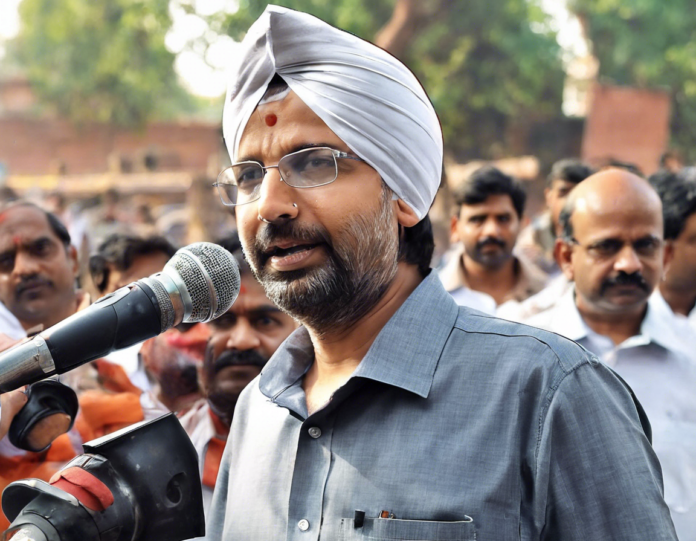India is a land of diversity like no other. With its rich history, vibrant culture, and vast geographical expanse, it offers a unique tapestry of experiences for travelers and explorers alike. Having had the privilege to embark on a journey through this incredible country, I have gained profound insights and revelations that have deepened my understanding of its essence. In this blog post, I reflect on my journey through India and share my thoughts on what makes this country so extraordinary.
The Diversity of India
India’s diversity is its defining feature. From the snow-capped peaks of the Himalayas to the sun-kissed beaches of Goa, from the bustling streets of Mumbai to the serene backwaters of Kerala, each region offers a unique flavor and charm. The cultural diversity is equally astounding, with a myriad of languages, cuisines, customs, and traditions coexisting harmoniously. Exploring the bustling markets of Delhi, witnessing the majestic architecture of Rajasthan, and partaking in the colorful festivals across the country opened my eyes to the multifaceted nature of India.
The Spirit of Hospitality
One of the most heartwarming aspects of my journey was experiencing the unmatched hospitality of the Indian people. Whether staying in a humble homestay in a remote village or being welcomed into a lavish palace, I was always greeted with warmth and generosity. The concept of “Atithi Devo Bhava” (the guest is God) is deeply ingrained in Indian culture, and this ethos was evident in every interaction I had. The willingness of people to go out of their way to ensure my comfort and happiness left a lasting impression on me.
Ancient Wisdom and Modernity
India is a land where ancient wisdom coexists with modernity. Visiting spiritual centers like Varanasi and Amritsar allowed me to witness age-old rituals and practices that have been preserved for centuries. The teachings of yoga and meditation, rooted in ancient texts like the Bhagavad Gita and the Upanishads, continue to resonate with seekers from around the world. At the same time, bustling metropolises like Bangalore and Hyderabad showcase India’s prowess in technology and innovation, highlighting its transformation into a global hub for IT and business.
Culinary Delights
No journey through India is complete without indulging in its culinary delights. The diversity of Indian cuisine is staggering, with each region boasting its own signature dishes and flavors. From the fiery curries of the north to the subtle spices of the south, from the street food gems of Kolkata to the seafood delicacies of Kerala, every meal was a gastronomic adventure. Learning about the intricate spice blends, cooking techniques, and cultural significance of various dishes added an extra layer of depth to my culinary exploration.
Environmental Conservation Efforts
As I traveled through India, I was heartened to see the growing emphasis on environmental conservation and sustainability. Initiatives to protect endangered species, preserve natural habitats, and promote eco-friendly practices are gaining momentum across the country. National parks like Ranthambore and Jim Corbett serve as important sanctuaries for wildlife, while eco-resorts and organic farms offer sustainable tourism options. The awareness and efforts being made to protect India’s natural heritage are commendable and bode well for the future.
Reflections and Gratitude
My journey through India was a transformative experience that left me with a deep sense of gratitude and awe. The lessons I learned, the connections I made, and the memories I created will stay with me forever. India’s ability to simultaneously overwhelm and inspire, challenge and enchant, is a testament to its enduring allure. As I reflect on my travels, I am reminded of the profound words of Rabindranath Tagore: “The real voyage of discovery consists not in seeking new landscapes, but in having new eyes.”
FAQs
1. Is it safe to travel alone in India?
Traveling alone in India can be safe, but it’s important to take necessary precautions like researching destinations, avoiding secluded areas at night, and staying alert in crowded places.
2. What is the best time of year to visit India?
The best time to visit India is typically during the winter months (October to March) when the weather is cooler and more comfortable in most parts of the country.
3. Do I need a visa to visit India?
Most foreign nationals require a visa to enter India. It’s recommended to check the specific visa requirements based on your country of origin before planning your trip.
4. What are some must-visit tourist attractions in India?
Popular tourist attractions in India include the Taj Mahal in Agra, the Jaipur City Palace in Rajasthan, the beaches of Goa, and the backwaters of Kerala, among many others.
5. How is the healthcare system in India for travelers?
India has a mix of public and private healthcare facilities. Travelers are advised to have travel insurance that covers medical emergencies and to seek treatment at reputable hospitals if needed.
6. What are some cultural etiquette tips for visitors to India?
It is advisable to dress modestly, remove shoes before entering homes or religious sites, and show respect for local customs and traditions while visiting India.
7. Is it common to bargain while shopping in India?
Bargaining is a common practice in markets and street shops in India. It’s part of the shopping experience, but remember to do it respectfully and with a smile.
8. How is the transportation system in India for getting around?
India has a well-connected transportation system with options including trains, buses, domestic flights, and auto-rickshaws. It’s advisable to plan your routes in advance for a smoother journey.
9. Are there any specific health precautions to take before traveling to India?
It’s recommended to consult a healthcare provider for vaccinations and medications like antimalarials before traveling to India. Drinking bottled water and eating at reputable restaurants can also help prevent illnesses.
10. What is the currency used in India, and are credit cards widely accepted?
The currency in India is the Indian Rupee (INR). While credit cards are accepted at major hotels, restaurants, and stores in urban areas, it’s advisable to carry cash for transactions in smaller shops and rural areas.












